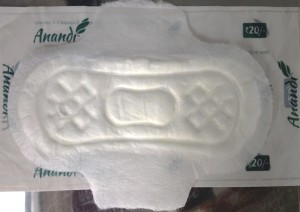Looking at my screen, noticing the blotch marks of oil and grease. There’s dust everywhere and my keys don’t seem to press down with the same elegance they once did when she was new, my laptop, who I affectionately call “my baby” has been good to us.
It is the fourth hour on our train from Kishengar to New Delhi and my contact lenses are drying up, the moon makes an appearance at 4pm in the desert and I am grateful that I have a seat next to Jaydeep Mandal, Co-founder of Aakar Innovations, one of the many active social enterprises at The Barefoot College, the world’s only college for the rural poor. A Mumbai based Social Enterprise transforming lives by distributing high-quality, compostable, sanitary pads to girls & women in rural India. His method: For The Women, By The Women.
The Problem: The Taboo & The Garbage!
India currently has over 300 million women without access to sanitary pads. Three out of ten girls drop out of school after menstruation due to a lack of hygienic methods and cultural taboos. These circumstances are similar throughout countries in Africa and Asia as well.
America throws away more than 20 billion tampons and pads per year and the western world is not so far behind. Disposables are typically made with conventionally produced cotton. One of the most toxic crops grown, using 20 percent of the world’s pesticides and herbicides. These materials are then bleached with chlorine dioxide, creating polluting, harmful and bio-accumulative byproducts like dioxin, which not only end up in the environment, but also remain in our bodies for decades. Add other synthetic chemicals and artificial fragrances to the mix, and you’ve got a recipe for side effects like allergic reactions, hormone disruption, reproductive and gynecological disorders like endometriosis.
So I immediately realize the monumental task laid on Jaydeep’s lap and congratulate him for making such great strides with the Anandi Pads.
The Solution: The Anandi Pads

It’s important to get the Anandi Pads manufactured and distributed, but it makes more sense to decentralize this mission and give the manufacturing and distribution power to the very people who need the product most. Aakar’s solution also addresses: income generation, pollution and menstrual awareness in remote parts of the world is to create grassroots operations within the rural communities.

Build the centres in a village, train & work with women to establish their own independent enterprises that will serve to provide the solution directly to their families & neighbours. It goes without saying that this method creates an uncanny support structure that empowers the organization from within.
Jaydeep’s Proof
Over 12 production units now exist throughout villages in India. As that number quickly rises and is due to meet 50 within the next few months, 600 rural women will now have sustainable sources of income while equipping and improving the lives of 150,000 women & girls with an ecological alternative still not yet used by “civilized” societies.

Jaydeep and I talk a little more about the world of Social Enterprises which seems to be exploding more and more every day. We make references to Satyagraha (truth force) and our duty as social workers. Jaydeep tells me a story of J&J’s impure interest with his company and compare ideologies on how one can grow “smartly” and with virtue. We kindle a friendship I’ve been getting used to, the one made between two people when they realize “the more we help each other, the better we will all be”.
They say that the best part of India are the moments you spend on a train. So I sit back and relax the strings in my mind which make connections between all my new thoughts, inhale and stare out to the humbling desert. Tomorrow I have a meeting with Osama Manzar, Co-Founder of Digital Empowerment Foundation. I can feel that there is a vast journey of social progress up ahead and along with my awesome team at Valhalla and Barefoot I’m looking forward to participate.


References:
http://www.mediaed.org/assets/products/240/studyguide_240.pdf
